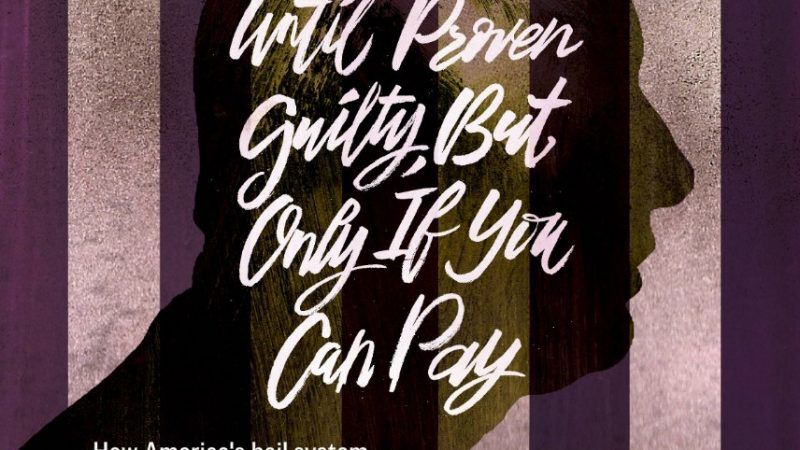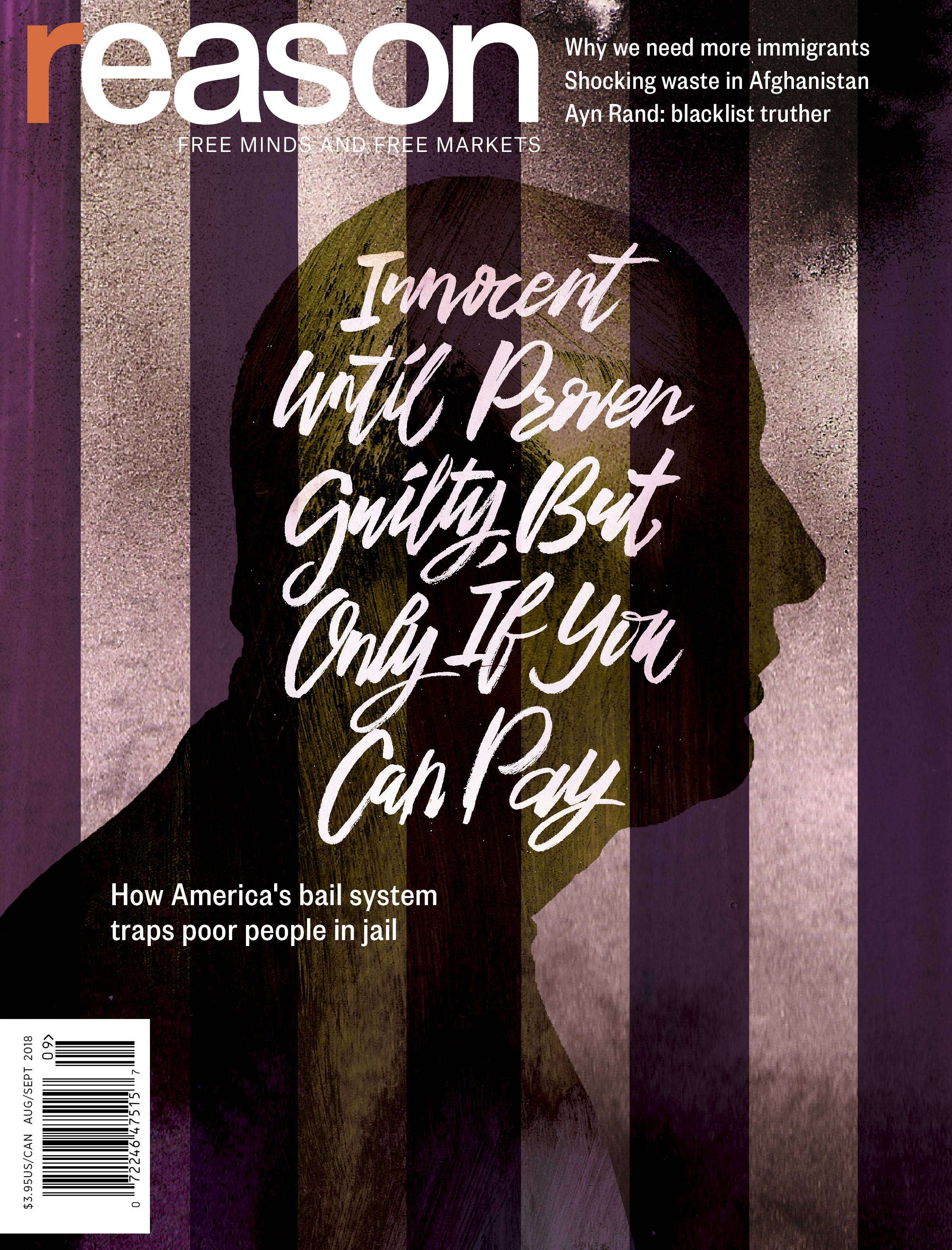Federal Court Upholds New Jersey's Bail-Eliminating Pretrial Reforms
No constitutional right to pay cash for freedom if there are alternatives


You don't have a constitutional right to a cash bail if courts use other methods to monitor and release defendants before their trials.
So ruled a federal appeals court Monday in a challenge to New Jersey's recent bail reforms. The lawsuit was filed by a defendant charged with assault last year—and was supported by an insurance firm that underwrites bail bonds.
New Jersey has almost completely stopped using cash bail—where defendants have to front money, typically through a bail bondsman—to determine who is released and who remains in pretrial jail detention. Instead, New Jersey courts use an extensive pretrial assessment system that calculates a defendant's public safety risks, drawing on his or her past conduct and on the nature of the charges. The court can then establish terms of monitoring for release, requiring defendants to check in with the courts on a regular basis and to accept an assortment of nonfinancial conditions for freedom. If the courts believe that someone presents an unsurmountable public safety risk, a judge can order the defendant to be jailed until trial. But money is no longer a consideration.
This has resulted in a 20 percent drop in pretrial detention. It has also, unsurprisingly, decimated the Garden State's bail bonds industry.
The person who filed the suit, Brittan Holland, got into a bar fight and was arrested and charged with aggravated assault. The prosecutor and the court's assessment system recommended that he be detained in jail due to the severity of the offence and his previous assault conviction. But after negotiations, everybody agreed to home detention and electronic monitoring instead.
Holland—supported by Lexington National Insurance Corp., a bail bond underwriting firm—then sued to stop New Jersey's bail changes. He argues that denying him the possibility of cash bail violated his Eighth Amendment right prohibiting excessive bail and his Fourth Amendment and Fourteenth Amendment due process rights.
The U.S. Court of Appeals for the Third District rejected these arguments. The three-judge panel ruled that the insurance company lacked standing to challenge the law. Holland can, but the court determined that there's no constitutional "right" to use money or a surety bond as a condition for pretrial release, and they don't think his challenge is likely to succeed.
To be clear, they're not saying that people don't have a constitutional right to seek pretrial release. Rather, the court ruled that there's nothing in the history of Eighth Amendment jurisprudence that requires that cash bail must be one of the mechanisms available to make sure people show up for their trials. It noted, in fact, that the development and expansion of cash bail in the United States over the past century has frequently accomplished the opposite of facilitating pretrial release:
Monetary bail often deprived presumptively innocent defendants of their pretrial liberty, a result that surely cannot be fundamental to preserving ordered liberty.
As a result, we hold cash bail and corporate surety bond are not protected by substantive due process because they are neither sufficiently rooted historically nor implicit in the concept of ordered liberty.
And those Fourth Amendment claims? Holland argued that demanding electronic monitoring in exchange for his freedom was overly intrusive on his privacy when compared to shelling out money to a bail bondsman to make sure he showed up for trial. The court replied that monitoring criminal defendants doesn't need to be the least intrusive choice, merely a reasonable one.
The ruling is a victory for bail reformers looking to spread New Jersey's system to other states. It's important to note, though, that the court favored the reforms pretty much because they are working. They mean fewer people are being detained simply because they're poor. And the defendant in this case wasn't even somebody who was being held in jail. Other communities attempting to follow in New Jersey's footsteps are sometimes seeing different results. In Maryland, unfortunately, they're getting more pretrial detention.
Jeff Clayton, executive director of the American Bail Coalition, released a statement disagreeing with the decision while acknowledging that maybe Holland wasn't the best defendant to challenge the law. Clayton said Holland's team will soon decide whether to push the case forward to trial or to try to appeal to the U.S. Supreme Court.
For more information about both the bail reform movement and how New Jersey's courts work under the new system, check out my Reason cover story in the August/September issue, hitting newsstands right now.


Show Comments (8)